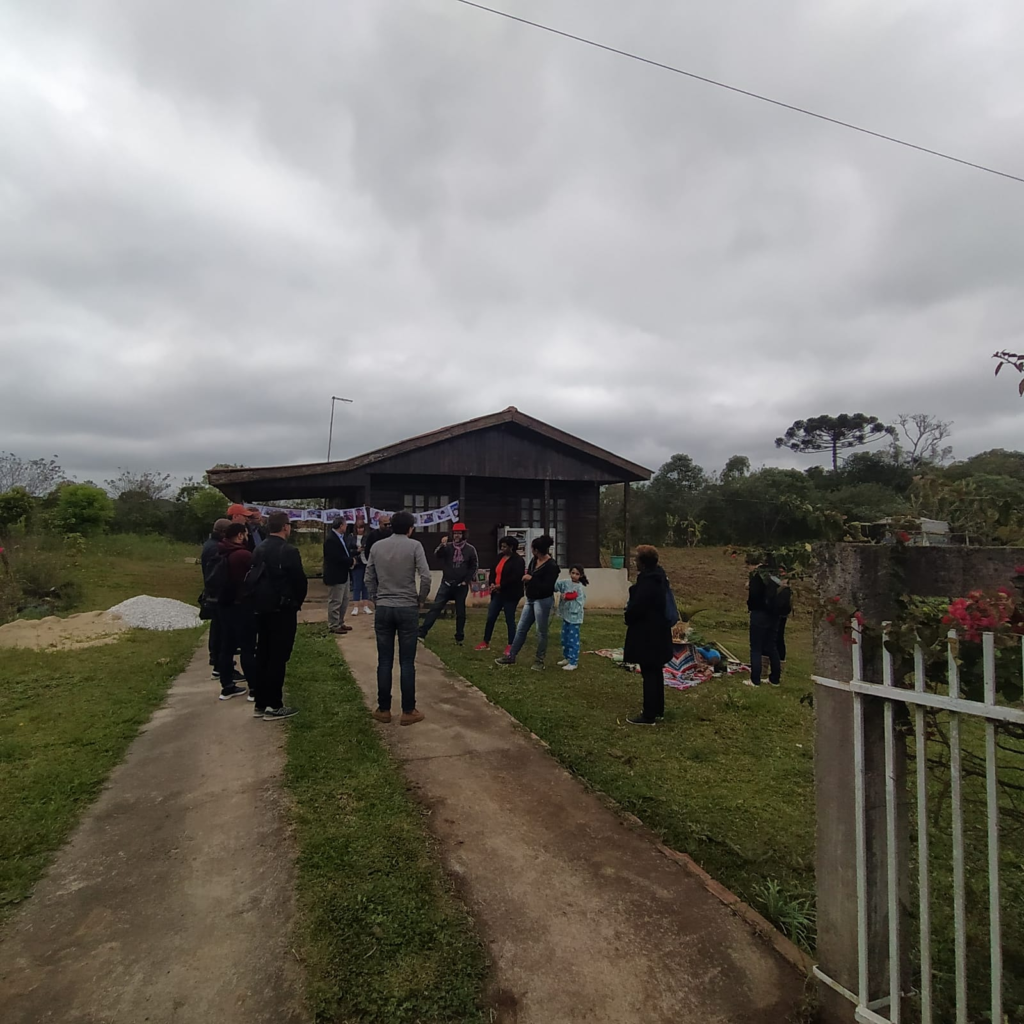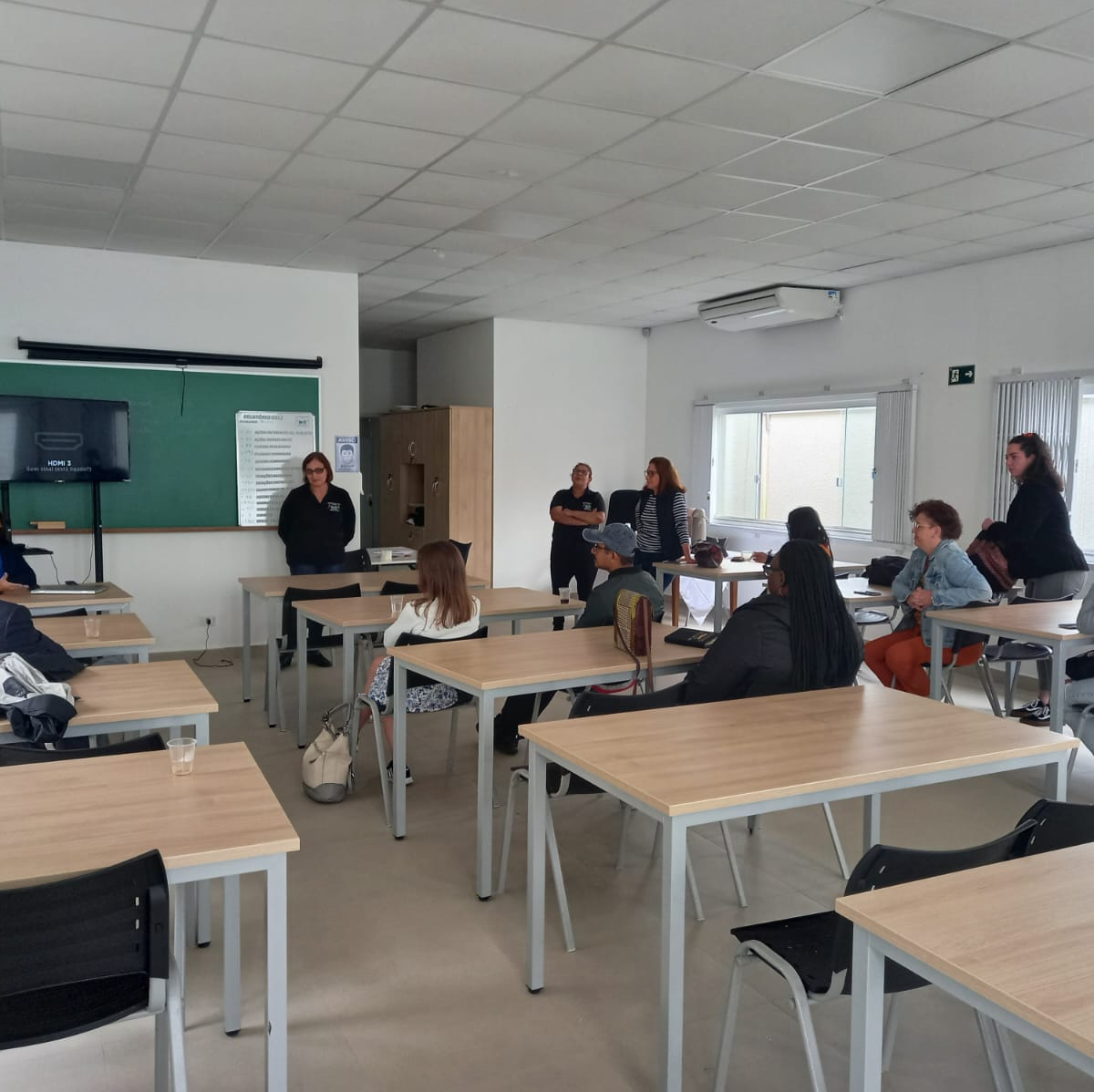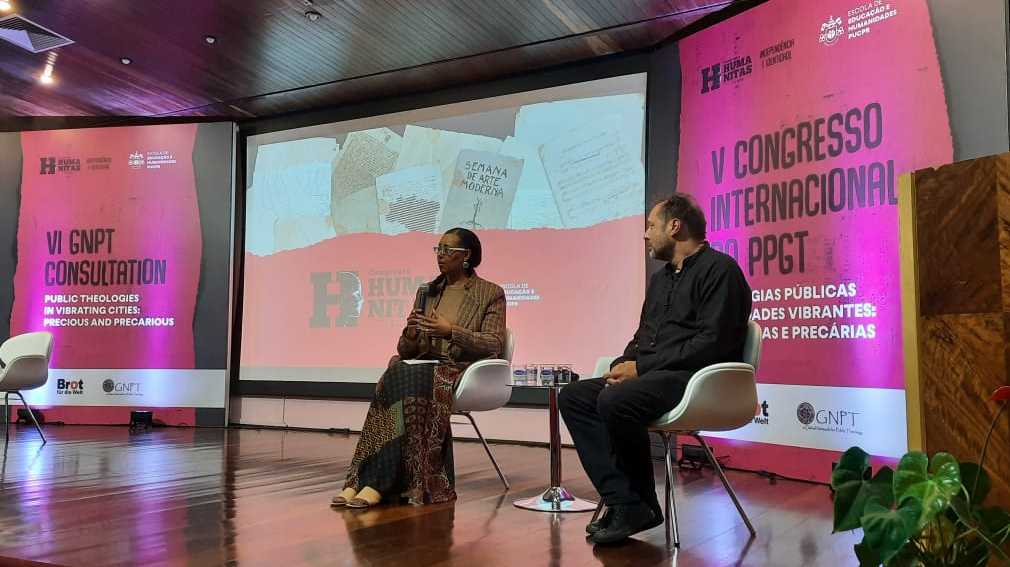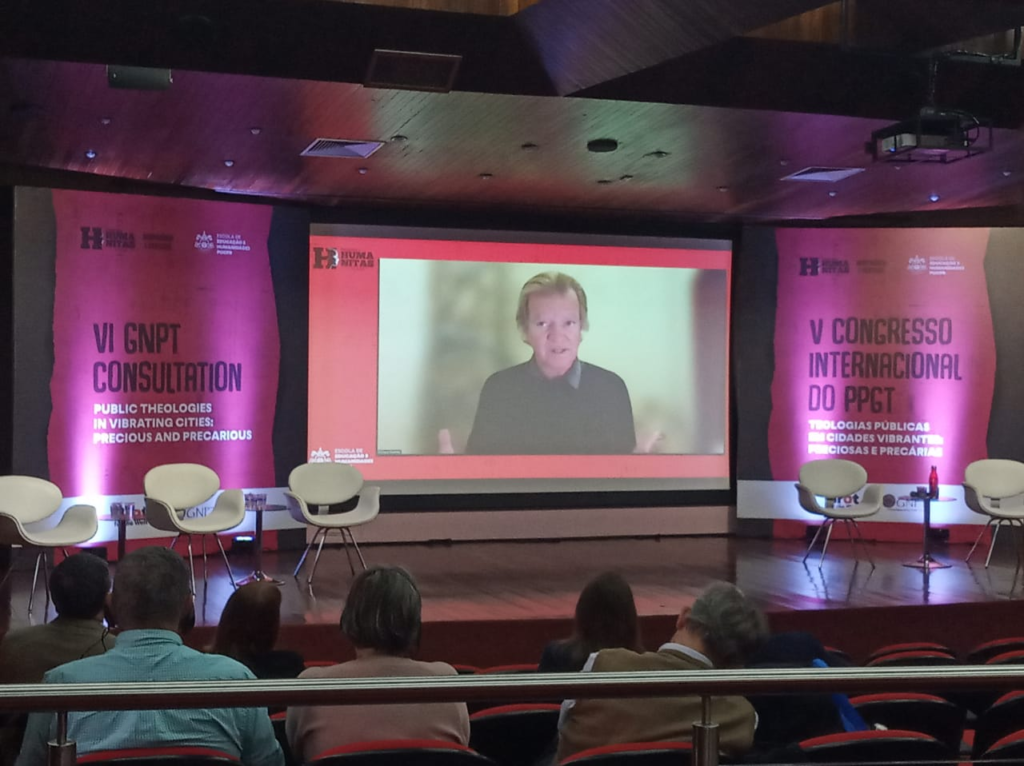Curitiba receives VI GNPT Consultation
After three years and overcoming alarming numbers of COVID-19 cases, the Global Network Public Theology has come together again. The sixth GNPT Consultation takes place at the Pontifical University of Paraná, in Curitiba, Brazil, organized by the Pos-Graduate Program in Theology of the School of Education and Humanities, from October 3rd to 6th. The event, which takes place in a hybrid way, brings together 77 people online and 73 face to face. They are theologians and scholars of religions from various colleges and universities from the four corners of the world, who are in the capital of Paraná to think about “Public Theology in vibranting cities: precious and precarious”, as the theme of the event indicates.
First day
The participants, before the official start of the event, were able to visit, on Monday, 5 community organizations that carry out social work related to the fight against poverty, racism and sexism, in addition to promoting cultural valorization, human rights, public policies, economic alternatives and overcoming the abuse of alcohol and other drugs. According to the organizers, the visit and the locations were chosen so that the participants have a first contact with Brazilian communities that can enrich and contextualize their local perceptions. As a pedagogical itinerary, to see the reality from which Brazilians live their faith, their struggles and produce theology.


In addition to the visits, the first day featured an Interreligious Celebration with the presence of Catholic, Lutheran, Umbanda, Jewish, Islamic and Buddhist leaders. The opening of the event brought together representatives of the university: Prof.ª Dr. Maria Cecilia Barreto Amorim Pilla (Humanitas Congress Coordinator), Prof. Dr. Cesar Candiotto (Dean of the Faculty of Education and Humanities), Prof. Dr. Rudolf von Sinner (Chair of the GNPT and Coordinator of the Graduate Program in Theology), Br. Rogério Mateuci (Rector of the University) and D. José Antônio Peruzzo (Metropolitan Archbishop and Grand Chancellor of PUCPR).


Second and third day
The mornings of the 4th and 5th were dedicated to communications in the Working Groups. The 130 researchers and students of religions were able to present their studies. There were about 115 works, which should be published in the future.
Sudanese professor and architect Amira Osman from Tshwane University of Technology was the keynote speaker on the second day. Osman presented “The river, the city and a dream: African urban imaginaries” talking about African cities as places of incredible creativity, which were organized and diversified around spaces and religious leaders, but beyond the dominant narratives, we will find initiatives that point to an alternative future where the focus is on decentralization, and on local systems of innovation, rather than the interests of big business. In South Africa, the COVID-19 crisis has shown this: many times a religious center has been the main reception space for migrants, and these have played a vital role during the pandemic. The audience can react to Osman's statements in a panel led by Stephan de Beer, and with the collaboration of Katie Day, Murray Rae and Charlene van der Walt. The second day ended with the Business Meeting.


On wedsnday, Irish professor and philosopher Richard Kearney from Boston College participated online with the lecture “Cities and Tents”, based on the biblical episode of Abraham's encounter with strangers in Mamre, reflecting on Jewish and Christian readings of divine-human relationships. and questioning how such an Abrahamic hermeneutic of hosting applies to the social and political issue of housing and homelessness today. A rich debate developed after Kearney's reflection, led by Prof. Dr. Jefferson Zeferino, with the collaboration of


The day ended with a dinner celebrating 15 years of the GNPT, where pioneers such as Clive Pearson of Charles Sturt University (Australia), Nico Koopman of Stellenbosch University (South Africa), Sebastian Kim of Fuller Theological Seminary (USA) and William Storrar from the Center for Theological Inquiry (USA), were able to share, with the mediation of Prof. Esther McIntosh from the Center for Religion in Society (UK), the challenges and achievements in building a network of teaching and research institutions really global, as well as your hopes for the coming year.
Last day
The meeting ended this Thursday, the program included a last meeting of the Working Groups. In the afternoon, Ukrainian professor Cyril Hovorun, from Stockholm University, gave the lecture "Symphony with Civil Society", demonstrating the dangers of Church-State relations, especially since the recent war in Ukraine. Instead, Hovorun emphasized a symphony between the Church and civil society as an alternative to avoiding support for authoritarianism. Rudolf von Sinner passed the Indonesian batik cloth, symbol of the GNPT, to the hosts of the next Consultation, the Fuller Seminary in Pasadena, USA.
The last lecture "Streets, Corners, Forests, Villages, Terreiros: Folding Christian Theologies to Other Enchantments" was given by the Brazilian professor at the Union Theological Seminary, Prof. Cláudio Carvalhaes, who showed the intersections between the quilombo, the forest and the terreiro, their deities, enchantments, sacred liturgical artifacts, gestures and knowledge, and how they create fantastic challenges to Christian theologies.


As an optional activity, participants can visit the Marist Memorial and Holocaust Museum, on Friday morning.

